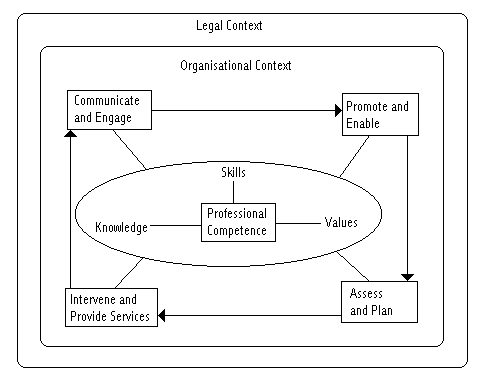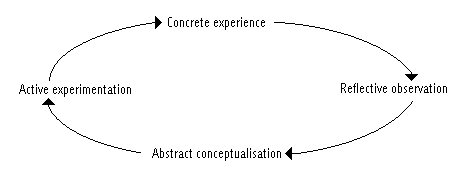
The approach to practice learning that is used in the West of Scotland Diploma in Social Work Programme rests on certain key assumptions about the nature of social work practice. Of these, the central assumptions are as follows:
Diagram 1 (below) illustrates the way in which the different phases of this process model are built on values, skills and knowledge. It shows the cyclical nature of the process, as well as the interrelationships between the phases of the process as work progresses and as understanding of the social context of the work expands.

It is within the above view of social work practice that students on the West
of Scotland Diploma in Social Work are required to operate and to learn. In
particular they need to demonstrate their ability to practice in a way that
ensures the continuing development of their professional competence.
The Learning Process
The campus-based modules make critically important contributions, in their different ways, to a range of different aspects of the student's professional learning. The Direct Practice Modules provide the main focus for (among other things) the integration of learning across all the modules, and the approach to practice previously described provides the means through which this is achieved.
The encouragement of a holistic approach to learning is more likely to lead to integration. Although students will bring a variety of individual learning styles and patterns to both DPI and DPII, nevertheless a model such as Kolb's (below) describes the essential learning process likely to be used in the development of the reflective practitioner.

ref: Kolb, D., Rubin, I., and McIntyre, J. - Organisational Psychology: An Experiential Approach. - 1979, New Jersey, Prentice Hall
This model illustrates the cyclical nature of learning, and emphasises the relationship between learning opportunities, study/reflection, supervision and the professional development task.
©West of Scotland Consortium for Education and Training in Social Work 2001.